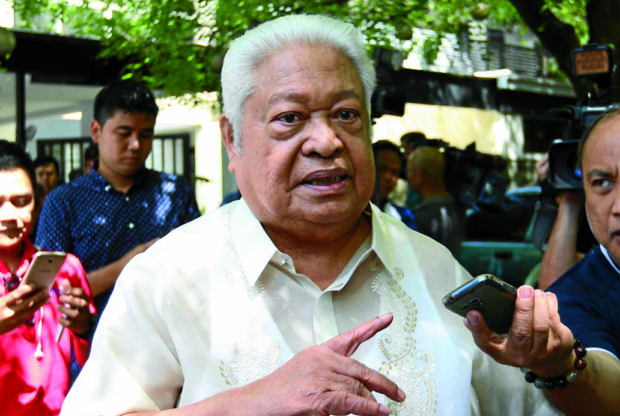Reviving capital punishment in PH may affect talks to save OFWs on death row–solon

Albay Rep. Edcel Lagman. (File photo by EDWIN BACASMAS / Philippine Daily Inquirer)
MANILA, Philippines — The reimposition of death row in the Philippines may affect the negotiations for Filipinos who are likewise on death row abroad, Albay 1st District Rep. Edcel Lagman said Friday.
Lagman said that if the death penalty is revived, the Philippine will lose moral ascendancy in negotiating for the lifting of the death sentences handed down to nearly 100 overseas Filipino workers (OFWs) worldwide.
The lawmaker made the remark after President Rodrigo Duterte renewed his call for Congress to pass the controversial measure for drug-related charges in his fifth State of the Nation Address.
“President Rodrigo Duterte during his State of the National Address forced a muted applause when he asked his audience of legislators why they were not applauding his call for the revival of the death penalty for drug-related offenses,” Lagman said in a statement.
“The President’s recommendation to the Congress to reimpose the death penalty aggravates his failure to disclose and discuss his administration’s response to the COVID-19 pandemic which is a death sentence to countless Filipinos,” he added.
According to Lagman, only 37 countries are implementing death penalty “both in law and in practice”—with China, Iran, Pakistan, and South Africa accounting for 90 percent of the executions.
Moreover, Lagman said that there is no empirical data supporting that death penalty is an effective deterrent to the commission of heinous crimes.
Lagman also noted that the reimposition of death penalty “exacerbates the culture of violence and its revival adds to the unabated extrajudicial killings consequent to the Duterte Administration’s deadly campaign against the drug menace.”
“The death penalty cannot be prioritized over the long-delayed reforms in our flawed police, prosecutorial and judicial systems which make genuine justice illusory to the vast majority of our people,” Lagman said.
“Capital punishment enforces punitive and retributory justice instead of promoting the modern and progressive concept of penology on restorative justice which aims to reform the convict and prepare his reintegration into society,” he added.
Further, Lagman said that the revival of the death penalty fails to consider that human justice is fallible and even the innocent can be executed.
The lawmaker said that while the 1987 Constitution allows the Congress to reimpose death penalty on heinous crimes for compelling reasons, “these two conditions on ‘heinous crimes’ and ‘compelling reasons’ are separate but concurrent.”
“The heinousness of a crime is not determinative of the compelling reason. They are not synonymous,” Lagman explained.
Lagman also pointed out that the Philippines is a State Party to the International Covenant on Civil and Political Rights (ICCPR) wherein among the country’s commitments is to abolish the death penalty and not to reimpose it.